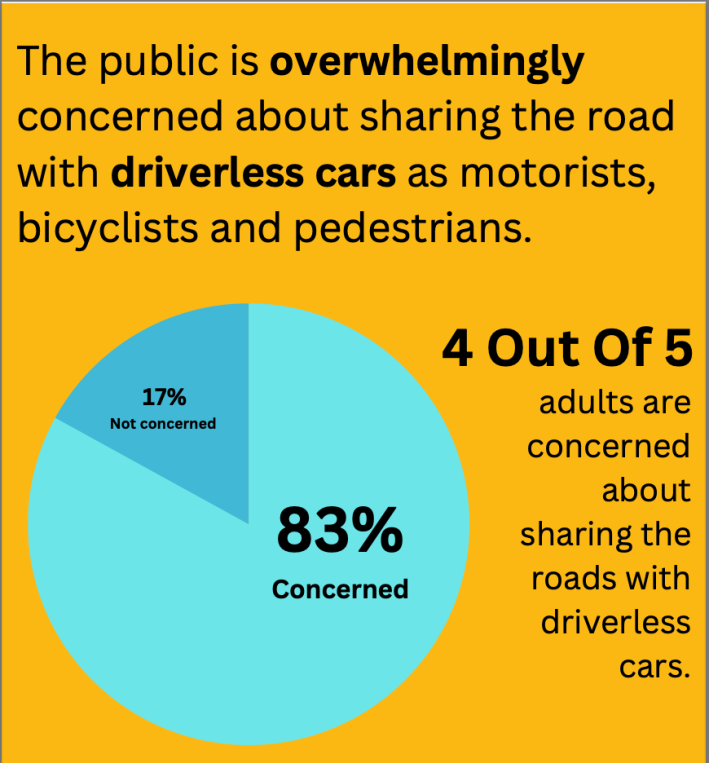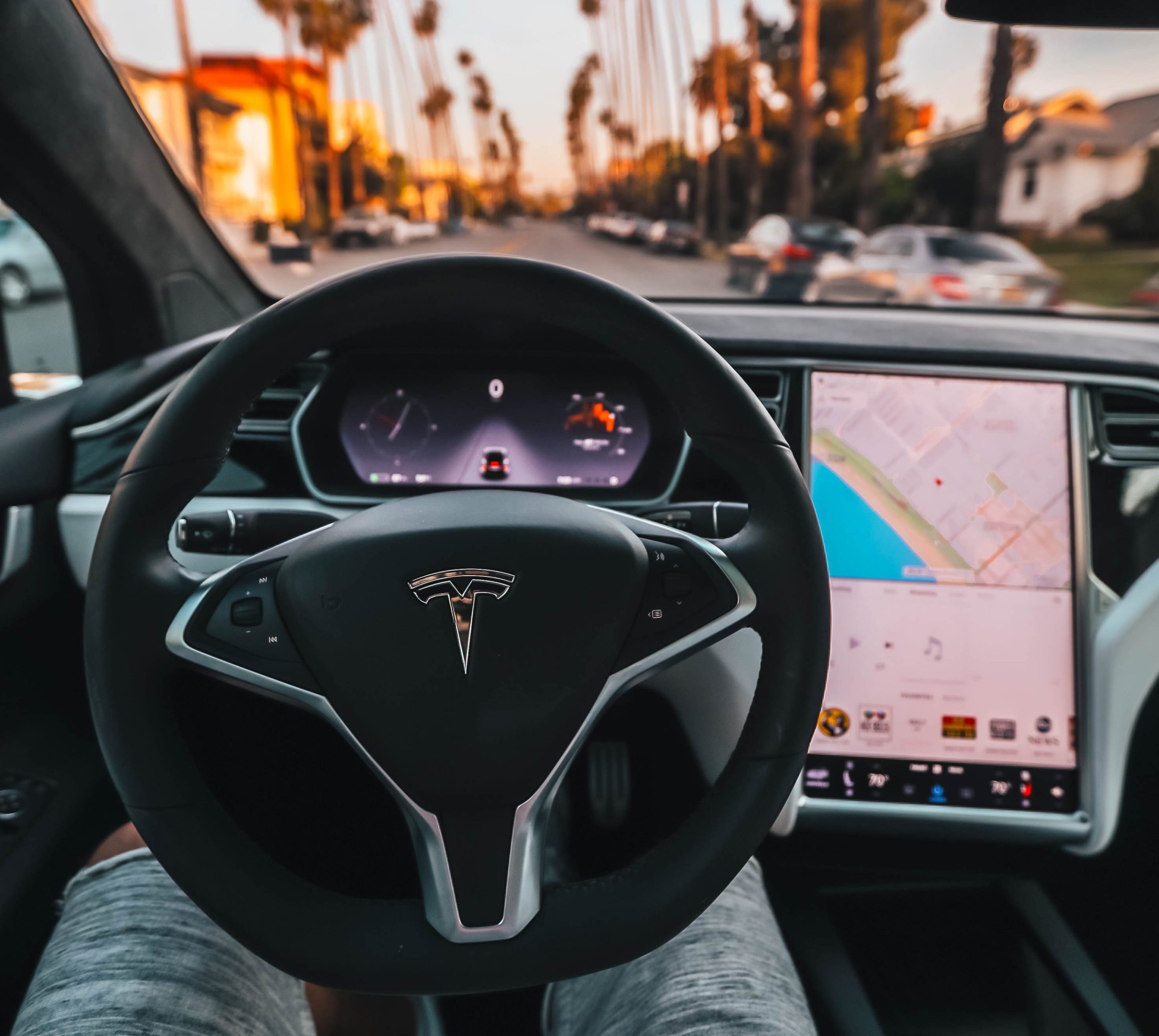In advance of today's congressional legislative hearing on robocar policy, safety advocates, academics, law enforcement, and elected officials are making the case that without proper oversight, autonomous vehicles have the potential to exacerbate the traffic violence their manufacturers claim they'll solve, while diverting resources away from proven solutions like road design.
Earlier this month, a coalition of twenty-two organizations signed onto a group letter opposing any potential legislation that would exempt AVs from federal safety regulations and allow their manufacturers to hide safety data from the public. Advocates pointed to a series of fatal AV failures in recent years, arguing that public roads shouldn’t serve as test tracks for private technology still decades away from realizing its full potential.
“It's important to emphasize that future benefits of AVs remain speculative and have yet to be proven to us in any tangible form,” said Center for Auto Safety Executive Director Michael Brooks at a press conference Tuesday. “But the AV industry continues to go out and promote aspirational future benefits for people with disabilities, for seniors, for the environment, and for improved safety outcomes for everyone on the roads. And while we would absolutely love for all of those things to happen, right now, the autonomous vehicle that can bring these positives simply doesn't exist.”
That cautious approach stands in stark contrast to the attitudes of Reps Cathy McMorris Rodgers (R-Wash.) and Gus Bilirakis (R-Fla.), who called today's hearing instrumental to the goal of “enhancing safety, improving lives and mobility, and beating China.” In a joint statement, Rodgers and Bilirakis argued that AVs will deliver the many benefits advocates say they industry have yet to prove are possible, while creating thousands of jobs — and they called out the two previous, Democrat-led congresses for their inaction on robocar policy, positioning China to take the lead on a driverless future.
Advocates say that vision of the future, though, is much rosier than the AV industry's present. The Washington Post reported in January that Tesla’s Autopilot software alone has been involved in 736 crashes and seventeen fatal incidents since 2019 — far more than previously suspected.
And that data doesn’t account for other kinds of AV incidents that, while not crashes, still pose serious public safety risks. On June 9th, a robocar made by the AV firm Cruise stopped in the street just a block from the scene of a mass shooting that wounded nine people in San Francisco’s Mission District. First responders were eventually able to navigate around the vehicle in an adjacent lane, but the experience prompted concern among law enforcement about AV's ability to reliably clear the way for emergency vehicles.
“Our counterparts at the San Francisco Fire Department [have] had many interactions with these vehicles,” San Francisco Police Officers Association President Lt. Tracy McCray said during the Tuesday press conference. "[It's] to the point that their chief [has called for] these vehicles [to] be checked constantly for compliance. As you know, in our job, in our line of work, seconds can mean the difference between life and death. And when a vehicle of this nature is unresponsive to our demands, to move out of the roadway, to stop blocking our access point so we can get to victims who've been involved in [...] a shooting or a collision or any other type of incident, it takes away seconds from us being able to go in and do our job effectively.”
Those calls were echoed by Dr. Missy Cummings, an engineering professor at George Mason University, who cited similar incidents of AVs obstructing law enforcement in Austin. And she also said it isn’t just academics and law enforcement that worry about AV safety: a staggering 83 percent of US adults are concerned about sharing the road with autonomous cars, according to a March poll conducted by Advocates for Highway and Auto Safety.

“I appreciate that maybe states and the federal government have wanted to take a hands-off approach to support innovation,” Cummings said. “But Americans are very clear. They would rather have more common sense regulations put in place for these vehicles than to have no regulations in place for these vehicles.”
As for the threat of losing out to competition from China, Cummings said that country is actually taking a far slower approach to AV technology than the House Subcommittee’s language might suggest.
“Any claims that China is getting ahead of us in the self-driving race, and it's our onerous federal regulations that are holding companies back from being successful … these are false and they're fear-baiting,” Cummings, a former military officer, said.
Transportation for America Director Beth Osborne added that many of the problems AVs purport to be on the brink of solving can already be solved with existing technologies like safer road design, smaller vehicles, and more mature driver assistance technologies — but we're not nearly so eager to invest those.
“I've often said that AVs are a Rorschach test of transportation,” Osborne explained. “Tell me what you think they will improve, and I'll tell you what problems you are most worried about, but not fully ready to tackle ... Promising tech will save us, while making no changes to the underlying problem [of an unsafe system], is a distraction so that many of our leaders can avoid the changes that all other developed nations have made to their transportation systems — [changes which have already] allowed them to save lives, while US roads continue to get more dangerous.”
The subcommittee hearing on “Self-Driving Vehicle Legislative Framework: Enhancing Safety, Improving Lives and Mobility, and Beating China” will take place on July 26 at 4:30 pm EST.






